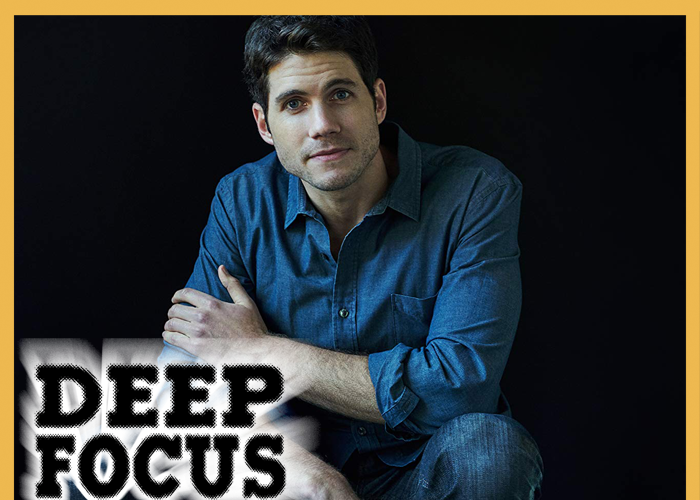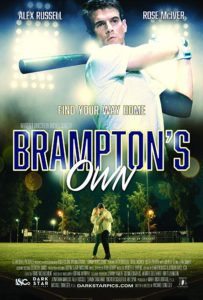 With Game 1 of the World Series set to kick off later tonight, we thought it was a great time to take a look at the new baseball movie “Brampton’s Own,” which is available now on Digital HD. Next up to the plate, we’re talking with writer, director and producer Michael Doneger, who originally wrote the part of Dustin, a minor league baseball player who returns to his hometown after leaving years before to chase his dreams, for himself. The film, which explores those things we sacrifice for our personal goals, stars Alex Russell, Rose McIver, Spencer Grammer, Scott Porter, Jean Smart and Riley Voelkel.
With Game 1 of the World Series set to kick off later tonight, we thought it was a great time to take a look at the new baseball movie “Brampton’s Own,” which is available now on Digital HD. Next up to the plate, we’re talking with writer, director and producer Michael Doneger, who originally wrote the part of Dustin, a minor league baseball player who returns to his hometown after leaving years before to chase his dreams, for himself. The film, which explores those things we sacrifice for our personal goals, stars Alex Russell, Rose McIver, Spencer Grammer, Scott Porter, Jean Smart and Riley Voelkel.
We recently sat down with Doneger to discuss combining grand ambitions with limited resources, the reason he never thinks a project isn’t possible, and why the theme of the film is eerily similar to his own journey.
TrunkSpace: You wore multiple hats in bringing “Brampton’s Own” to life. When it comes to blood, sweat and tears, just how much did you put in order to make the film – your vision – a reality? Where did Your Dreams Road and Compromise Street intersect?
Doneger: In my experiences, compromising is inherently built into the filmmaking process. However I don’t look at compromising as necessarily abandoning your vision, but instead having to find a backup solution to ultimately getting where you want to go. For instance, our story required many locations and a lot of wardrobe changes. Typically film budgets similar to what we were working with try to minimize the number of locations and wardrobe changes, but to me, that would’ve limited the scope of the world I was trying to build. I didn’t want it to feel like an indie film. I just wanted it to feel like a film. So the compromise there was that we were going to have less time and fewer days to film, which meant actors would get fewer takes than what they’re used to, and our production departments would have to work at an accelerated speed to keep up. But we knew going into it that we were combining grand ambitions with limited resources, so we planned for that far in advance, and hired a cast and crew that was game for the type of pace we were asking for. Having said all that, it’s rare for everything to go without a hiccup and the final product turn out exactly how you envisioned. We experienced quite a few hiccups, but overall the film mirrored the vision I had for it as much as I could’ve reasonably expected. That’s not to say there aren’t scenes or moments I’d like to take a second crack at, or more time I’d like to get in the editing bay to nip and tuck a couple of things. But to expect it to ever be perfect is unrealistic. “Art is never finished, only abandoned,” said the wise Leonardo da Vinci.
TrunkSpace: Because of the various responsibilities you had throughout the course of the film, did Producer Michael and Director Michael, or Director Michael and Writer Michael, ever butt heads? Did you have to find a balance between what you creatively wanted to put on film and what budget and time would allow?
Doneger: I’ve never been hired to write and direct a movie that I wasn’t producing, so quite frankly I don’t know any other way. I’m sure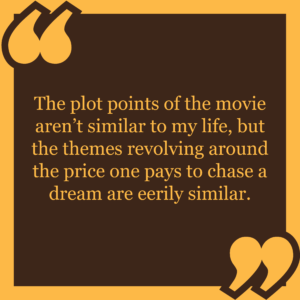 there are benefits to having fewer responsibilities and not being tasked with overseeing creative and business decisions, but there are also benefits of the buck stopping with you and not being able to point a finger at someone else. My producing partner Mark DiCristofaro does an excellent job of running production and making sure I have everything I would reasonably need to make our day. And again, a lot of that starts in the pre-production phase. I shot listed the film months in advance, so Mark and I were on the same page early on in terms of gathering the necessary film gear and lighting equipment for each scene. For example, my original shot list asked for seven days of a Steadicam operator, but Mark told me early on that we could only afford three days, so given that information, I adjusted and made shot list concessions where I could.
there are benefits to having fewer responsibilities and not being tasked with overseeing creative and business decisions, but there are also benefits of the buck stopping with you and not being able to point a finger at someone else. My producing partner Mark DiCristofaro does an excellent job of running production and making sure I have everything I would reasonably need to make our day. And again, a lot of that starts in the pre-production phase. I shot listed the film months in advance, so Mark and I were on the same page early on in terms of gathering the necessary film gear and lighting equipment for each scene. For example, my original shot list asked for seven days of a Steadicam operator, but Mark told me early on that we could only afford three days, so given that information, I adjusted and made shot list concessions where I could.
TrunkSpace: It’s always a long road to travel in order to get an independent film to that first day of shooting. At what point in the process did you know that it was going to become a reality and was it smooth sailing after that point?
Doneger: Smooth sailing? That’s a thing? Huh… I’ll have to look into that. (Laughter) In terms of coming to the realization that the film is going to become a reality: I never for one second think it’s not going to happen. Even in the writing stages, I’m never thinking about “if” it happens, but rather “when”. And I believe that as a filmmaker – you need a certain amount of naiveté to thrust yourself into this crazy business in the first place. The industry is volatile on every level, whether you’re on the creative side or business side. So if you’re too practical and calculate the odds, the numbers will tell you that you’re crazy to take the risk of going out and making a movie. So my mindset from the beginning of every project I work on is when we’re going to make this movie not if. But of course you can’t make a movie just because you want to do it. There are lots of factors that rest outside your control. But your mindset is the one thing you can control. And it all starts there.
TrunkSpace: Sacrificing a more traditional life path in order to chase a dream. For your protagonist Dustin, that’s baseball. Did you feel a kinship with the character when writing? Could you relate to those sacrifices based on your own pursuit with film?
Doneger: Absolutely. I conceived the project based on my own journey of navigating the ups and downs of trying to make it as a filmmaker. Dustin’s not a direct replica of me. I don’t have estranged relationships with my childhood friends or ex-girlfriends or family members. But for Dustin, I wanted to give him as many obstacles as I could when he returned home. And those obstacles were these relationships in which he did a terrible job of maintaining while he was off chasing his dream. The plot points of the movie aren’t similar to my life, but the themes revolving around the price one pays to chase a dream are eerily similar.
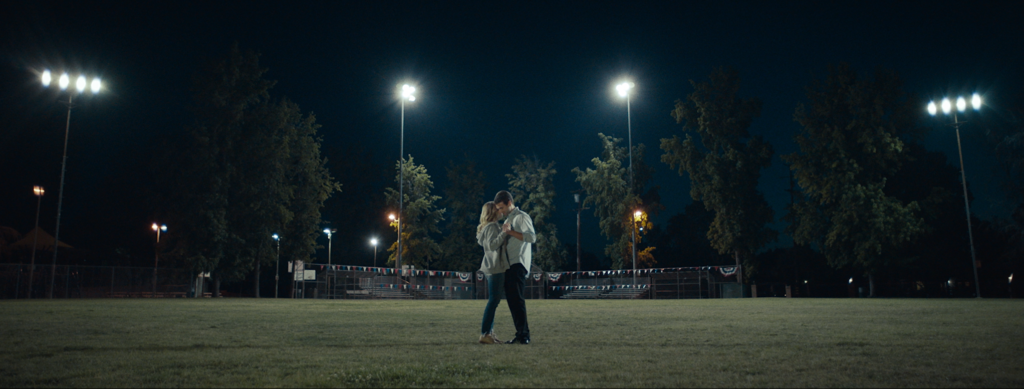
TrunkSpace: You originally wrote the script with the intention of playing Dustin. What made you step back later in the process and cast Alex Russell in the role?
Doneger: Oh, wow. You’ve done your research. You’re right, I had originally intended to play Dustin, but by the time we got closer to putting the production elements together, I cared less about owning the character of Dustin from an actor’s point of view and cared more about owning the film as its director. Acting and directing are two diverging skill sets. As an actor, your job is to solely focus on your character, your intentions, your choices. As a director, your job is to know every little detail that goes into painting the entire picture. That means being in non-stop communication with every department head. So naturally, that would distract an actor from solely focusing on his or her performance. Ultimately I feared that if I did both on such a limited 15-day shooting schedule, that my performance wouldn’t have been as good as it should’ve been, nor would the film have fulfilled the vision I had for it. And I’m so glad I made that decision because Alex is tremendous in the film as Dustin and an extraordinary person. He’s so detail oriented and every choice he made came from a place of reason, which made it very easy for us to communicate and collaborate.
TrunkSpace: When hiring someone to play a character that was originally intended to be inhabited by you, do you then look for elements of yourself in your actor, in this case Alex? (We realize this question is very meta, but it’s fascinating… the idea that you’re looking for something in a performer that you originally saw in yourself.)
Doneger: I never looked for Alex to tackle a scene or make a choice comparatively to how I would’ve played it. Each actor has their own strengths and weaknesses and it’s my job to help extract and support those for whatever the scene calls for. I believe that most of directing an actor is done in casting. You know right away upon meeting an actor whether they’re right or not to play a role – at least in my experiences. And within five minutes of meeting Alex I knew he was going to be perfect for Dustin. Then the more familiar we got with each other the more we trusted one another. The director/actor relationship is all about trust.
TrunkSpace: What are you most proud of when it comes to “Brampton’s Own?”
Doneger: I’m proud that from start to finish, it’s a production that by all accounts, our cast and crew had an overwhelmingly positive experience on. Mark DiCristofaro and I value how enjoyable it is to work alongside an actor and crew member, just as much as we value their talent. That working environment matters. Chemistry behind the scenes is just as important as chemistry on the screen.
TrunkSpace: Did you have to change plans at all mid-production because of time and budget headaches, only to then take a different creative approach and end up with a gem that you never intended to have in the film?
Doneger: You always have to be on your toes and know to expect unforeseen obstacles. I don’t think it’s an exaggeration to say that every scene calls for a pivot and change of approach in one way or another. You never get exactly what you want. But to answer your question, nothing big or extraordinary stands out.
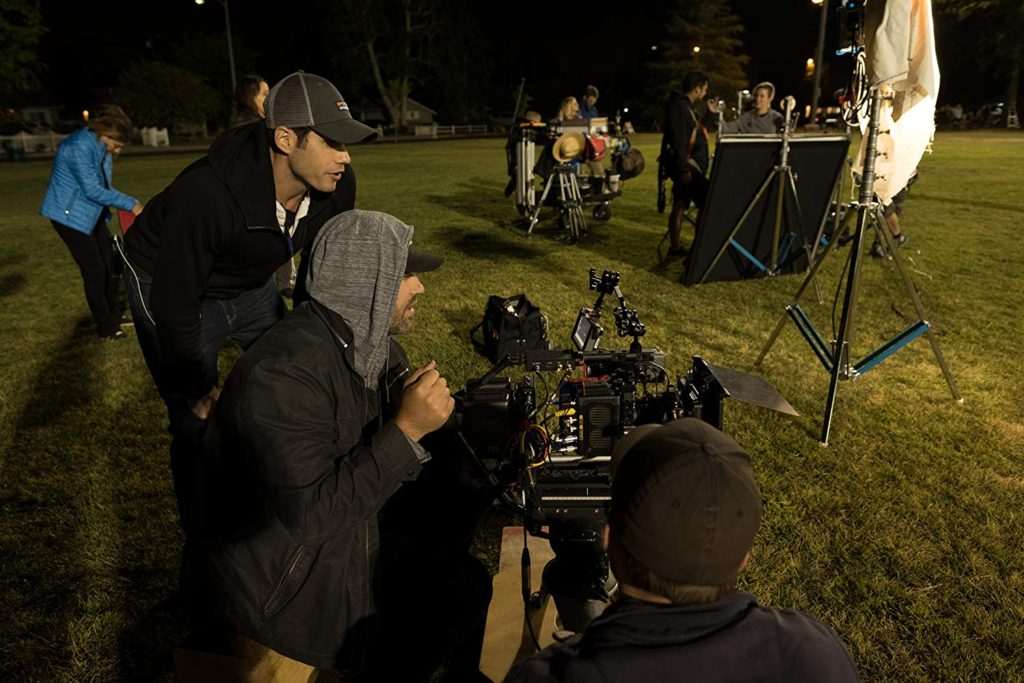
TrunkSpace: You once wrote and produced a project that featured Bruce Campbell. Couldn’t you have just retired then and been a happy man? There are 100,000 future filmmakers sitting at home right now watching “Evil Dead 2” as we speak!
Doneger: What a great experience that was working with Bruce. We were so lucky to get him. We’re at the same agency and I have to thank his agent Barry McPherson for really making that happen and putting the project in front of Bruce. I hope to one day find another opportunity to work with him.
TrunkSpace: What we love about a movie like “Brampton’s Own” is that it is original. It isn’t “Based On The…” or a “Sequel To…” or a “Remake Of…” It’s just a great original story, which seems to becoming more and more of a rarity in the world of film. How important is independent filmmaking these days to giving audiences more than super heroes and super franchises?
Doneger: The bright side is that there are various outlets, platforms and mediums for different types of stories these days. Sure, the theatrical experience is mostly inundated with superheroes, sequels and pre-existing IP, but the streaming services, cable and networks are home to a lot of great character-driven storytelling. I’ll admit, I really do miss the mid-budget range studio drama that now rarely gets made. The studio comedy is also slowly becoming extinct. But a lot of those stories are being told, just not as a movie, but either a streaming or miniseries. However sometimes I don’t want to watch a 10-episode season of a show to get my character-driven dramatic or comedic fix. Sometimes I want to see those stories told from beginning to end within two hours. And that’s what independent film has to offer.
TrunkSpace: If someone came to you tomorrow and said, “Michael, here is a blank check. Go out and develop any project that you want for yourself.” What would you greenlight and why?
Doneger: Wow, what a question. I don’t have a dream project that comes to mind. I’m so focused on my next step, the next script, the next film, that I haven’t really taken a bird’s eye view look at my career and the specific projects I want to tackle past the ones I’m currently working on. But my goal is to continue to build projects that are bigger in budget and scope than the previous ones while still making the stories feel intimate by nature of putting character development at the forefront of any story I tell. But I guess if someone would like to give me a blank check to make a movie around the theme of love disguised as a 200 million dollar outer space spectacle, then I’m not gonna fight ya… oh, wait. Christopher Nolan already did that.
“Brampton’s Own” is available now on Digital HD, including iTunes.


